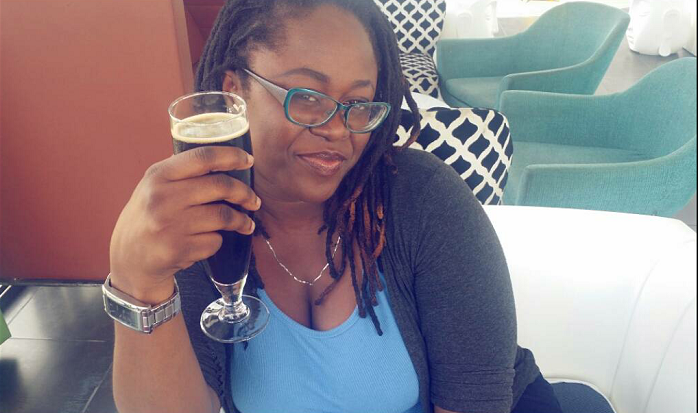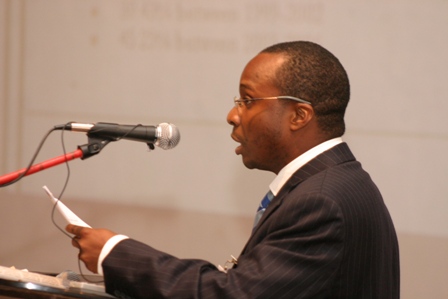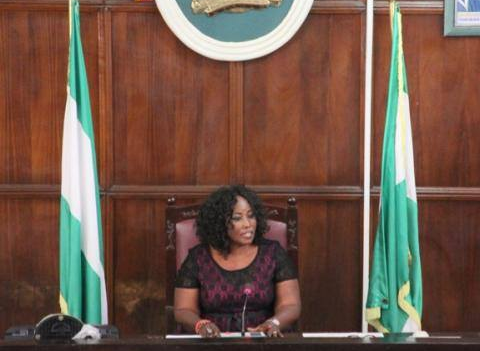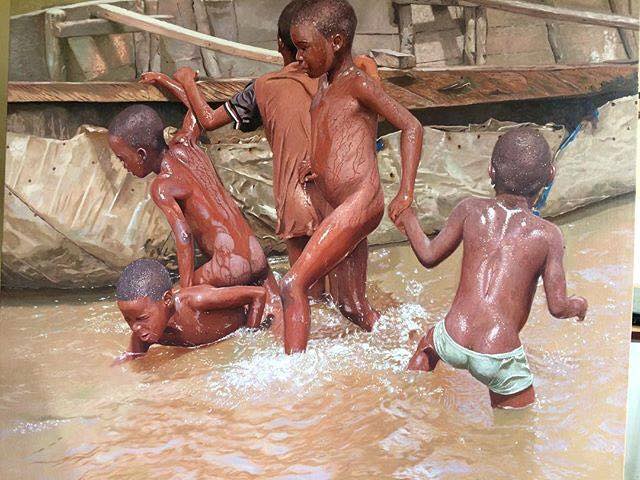Nkiru Njoku is a screen writer. She is the head writer of Tinsel, the longest-running TV series in Nigeria. She is also the head content producer of MTN project fame Africa. In this interview with TheCable in commemoration of the International Women’s Day, she speaks about the challenges women face in the film industry.
What are the major challenges women in film face and how are these challenges different from challenges men face or challenges that are not gender-specific?
A long time ago, I read somewhere that being a woman means that you are born with one strike against you, first of all. ’The weaker sex’ is a phrase that has been parroted over the years, so that as a girl child, you truly believe yourself to be weaker than your male relatives, friends, class mates. This means that the older you grow, if you do not have the in-born nous to stand against stereotypes, or you do not encounter a paradigm-shifting experience, you go on believing that there are things you cannot do. Film making and television is an industry where women tend to thrive mostly on-screen. Off-screen technical film/TV jobs are mostly male-dominated and there is, therefore, a vibe around such jobs, where men and women alike tend to believe that directing, camera handling, editing, sound-engineering, lighting, etc., are for ‘men’, while so-called softer jobs like producing (and this is funny because a producer’s job is HUMONGOUS), catering, costuming, etc., are tailored for the woman.
Men come at whatever TV/Film careers they want, without needing to prove beyond a reasonable doubt that such jobs are for them. Nobody is sitting there eyeballing them and wondering, “why does this man want to be a camera handler?” He has one star in his favour already just because he is a man. And that is the major challenge – this twisted mindset.
Advertisement
Do you think women are adequately represented in this field?
Women are not adequately represented in the technical aspects of film and television. The bug is spreading, and more women are picking up off-screen jobs and turning them into viable careers. But there is still so much more room for us. It’s amazing just how much a woman can fit into any role she is interested in. And many women do not understand that when it comes to paying attention to detail, we are naturals. When it comes to aesthetics of a film set for instance, or composing a shot, or even editing a scene, a woman’s natural eye for detail and nuance means that she is likely to tell a more nuanced story. I wish more women would drop the panic and find their way behind the scenes. There is so much we can do!
What are the barriers, societal or otherwise, that stop women from getting into the film industry, getting key positions off screen?
Advertisement
There are a number of barriers that stop us women from getting into the TV/Film industry. They all fall under the big umbrella of wrong mind sets and attitudes. But to piece them apart, I’d throw these out there:
Some women believe that they are weak. They think the more ‘fancy’ positions are the only careers they can aspire to. There is nothing wrong with being a presenter or an actor, but if you are interested in other tech aspects of the job, you need to embrace that thing you are afraid of. Women have done it before you and have succeeded.
Some employers will not take a woman seriously who is interested in a technical job. No matter what she knows or has achieved, some employers will immediately be put off by a woman who wants a ‘man’s’ job.
Some employers are afraid of women who aspire to key positions off-screen. They are worried that such women will not fall under the stereotyped head-space where a woman on the job allows herself to be someone you can have flighty conversations with, flirt with, and generally bully.
Advertisement
I know you fully identify as a feminist; so, how do you deal with stereotypical characters of women portrayed in films. How can this be corrected?
I do not take seriously any TV or film content that cannot tear itself away from working with stereotypes of any kind. It’s that simple. As a television writer, I currently head the writing team of a popular daily soap. In writing our female characters, I make sure that we don’t have stereotypes running amok in our stories. And when a story leads a female character down a path where she displays weakness and flightiness, we try to make sure we involve her in her own redemption. In story-telling, I personally will not sit around and watch a woman beg to be saved by a man or let herself be saved by anyone else without being actively involved in her own growth. This is not to say that women cannot be weak, flighty, silly, etc. Humanity can be all of these things, regardless of gender. But in order to shift ways of thinking, we will have to be deliberate about how we channel the things we want to see on TV.
To correct the portraying of demeaning stereotypes, we, as story tellers and feminists, must simply make up our mind to feed our values through to our audiences via our characters’ journeys. The more we tell stories that show women in a different and positive light, the more we are able to affect how people see and relate to women. It might be soft and subliminal, it might also be direct and jarring messaging, but we must just do it. It’s on us.
Finally, would you say women are marginalised in the film industry?
Advertisement
Marginalised is not the word I would go for in describing the obviously male-dominated film industry’s attitude to women. I would rather say we are feared, in a negative sense. A woman who will break barriers will break barriers, whether she has many other responsibilities on her shoulders or not. Women have eagle-eye focus. When we set our eyes on something, we do it, with a singularity of purpose that can drive even us nuts. This kind of dedication means that a lot of men are often threatened by us when we decide to take up technical off-screen jobs. There can even be a ‘she wants to steal my job’ vibe in certain circles.
More often than not when a woman does her work well and it exposes the inefficiency of some of the men around her, some man somewhere is ticked off at her for showing him up. So when such men find themselves in positions of authority, they will marginalise us women, but I know where this is coming from and I feel sorry for them. So I will not use ‘marginalise’. I will stay with ‘women are feared in the industry’, and I don’t mind that very much, because we can do anything we set out to do, whether you are afraid or not.
Advertisement
Add a comment






